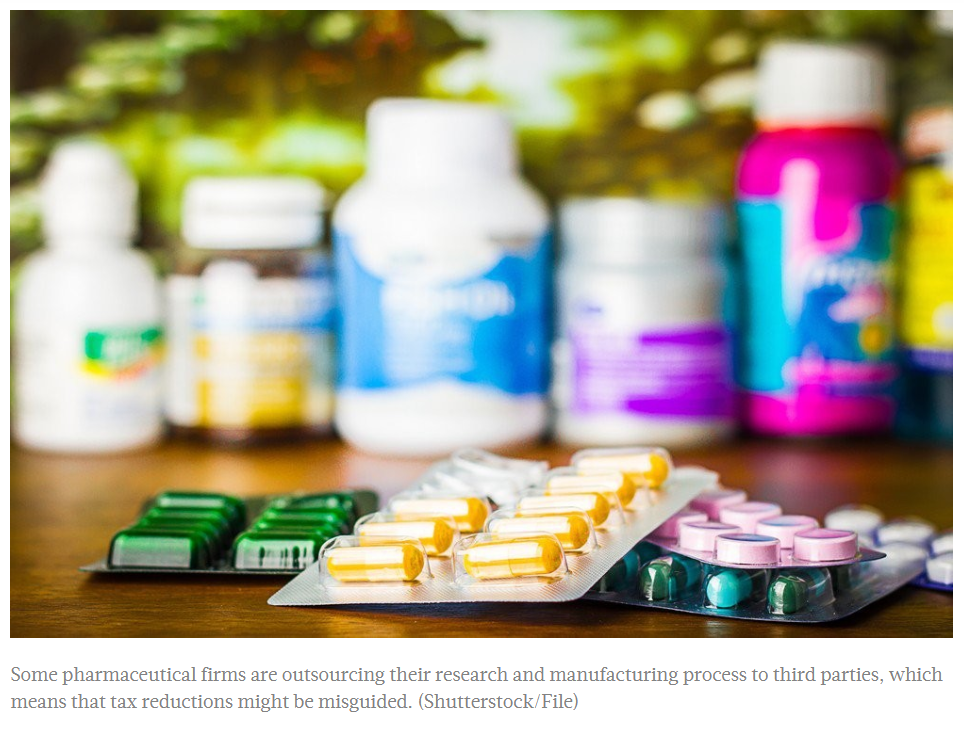Regulatory issues limit Indonesia’s role in global pharma value chain: Think tank
With the world racing to fight the COVID-19 pandemic, Indonesia may miss an opportunity to increase its role in the global value chain of the pharmaceutical industry because of regulatory issues, a think tank has said.
According to the Center for Indonesian Policy Studies (CIPS) highlighted, the lack of government enforcement on the mandatory local content for pharmaceutical products, as stipulated in Industry Ministerial Regulation no. 16/2020, has done little to spur the growth of the pharmaceutical industry.
“The problem with this kind of forced localization is that it does not actually encourage development in the industry,” Andree Surianta, associate researcher at CIPS, said on Thursday.
Meanwhile, the government’s incentives, like a tax reduction of up to 300 percent for pharmaceutical firms’ spending on research and development, also did not align with the trend in the global pharma value chain, Andree added.
Some pharmaceutical firms are outsourcing their research and manufacturing process to third parties, which means that the tax reduction might be misguided.
“This is a good initiative. However, this seems to have a traditional, integrated pharma [supply chain] model in mind,” Andree said.
CIPS is of the view that the Indonesian pharmaceutical industry has the potential to take advantage of slowing manufacturing activities in China because of restrictions during the pandemic.
COVID-19 has severely disrupted global supply chains. The World Trade Organization has estimated that global trade will fall 18.5 percent year-on-year (yoy) in this year’s second quarter. The pandemic has also made some companies question their heavy reliance on China.
The United States market, for one, sourced 13 percent of its active pharmaceutical ingredients (APIs) from China as of August 2019, according to the Center for Drug Evaluation and Research (CDER).
Meanwhile, as the Indonesian pharmaceutical industry currently sources 90 percent of its production input from overseas, the Jokowi administration is also trying to spur the production of local substitutes to reduce the country’s dependence on imported raw materials.
In May 2020, the country’s exported pharmaceutical product was valued at US$44.7 million while imported pharmaceutical products were worth $94.8 million.
DBS, Southeast Asia’s largest bank, previously said that Indonesia would benefit from the diversification of the global supply chain, as multinational companies are looking into ways to reduce their reliance on China to manufacture their supplies.
During a virtual media briefing on Monday, DBS group head of global transaction services John Laurens explained that the shift in major supply chains to ASEAN countries would be part of the “new normal” for businesses.
“Diversification will continue and markets like Vietnam, Bangladesh, India and Indonesia will benefit from that diversification,” Laurens said.
The lack of supporting regulations has not only hindered the industry’s growth but also Indonesia’s progress in improving its ease of doing business, which has stagnated at 73rd position in the World Bank’s ranking for the past two years.
Siswo Pramono, head of the policy analysis and development agency at the Foreign Affairs Ministry, said on Thursday that he projected Indonesia’s ease of doing business to improve in the next five years.
“You can see the steps taken in the last 10 years; we jumped from 129th to 73rd rank,” said Siswo, adding that Indonesia’s attractiveness would be propelled by its market size and political stability.
Source: https://www.thejakartapost.com/news/2020/07/10/regulatory-issues-limit-indonesias-role-in-global-pharma-value-chain-think-tank.html


 Thailand
Thailand




